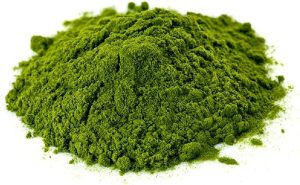
What are Fatty Acids?
Fatty acids are organic molecules consisting of a hydrocarbon chain and a carboxyl group. Crucial for various biological functions, they serve as building blocks of lipids, including triglycerides, phospholipids, and cholesterol.
Classified based on their structure and the presence of double bonds, essential types include omega-3 and omega-6 fatty acids, vital for health but not synthesized by the body. Omega-7 and omega-9 fatty acids, though non-essential, offer cardiovascular and anti-inflammatory benefits.
Found in diverse food sources like fish, nuts, seeds, and oils, fatty acids contribute to energy storage, cell membrane structure, hormone synthesis, and overall physiological well-being. Achieving a balanced intake is key for optimal health, emphasizing the importance of a diverse and nutritious diet.
Omega-3
1. Functions of Omega-3 Fatty Acids:
- Heart Health: Omega-3 fatty acids have been associated with a reduced risk of cardiovascular diseases. They help lower blood triglyceride levels, reduce blood pressure, and prevent the formation of blood clots.
- Brain Function: Omega-3s, particularly EPA (eicosapentaenoic acid) and DHA (docosahexaenoic acid), are essential for brain development and function. They are crucial components of cell membranes in the brain.
- Eye Health: DHA is a major component of the retina, and adequate omega-3 intake is associated with a lower risk of age-related macular degeneration.
- Anti-Inflammatory Effects: Omega-3s have anti-inflammatory properties, which may help in managing chronic inflammatory conditions, such as rheumatoid arthritis.
2. Sources of Omega-3 Fatty Acids:
- Fatty Fish: Salmon, mackerel, sardines, trout, herring, and tuna are rich sources of EPA and DHA.
- Flaxseeds and Flaxseed Oil: High in alpha-linolenic acid (ALA), a plant-based omega-3.
- Chia Seeds and Hemp Seeds: Good sources of ALA.
- Walnuts: Contain ALA and provide a plant-based source of omega-3s.
- Canola Oil: Contains ALA and is often used in cooking.
- Krill Oil: Krill is a small crustacean, and krill oil is a supplement rich in EPA and DHA.
3. Deficiency of Omega-3 Fatty Acids:
- Omega-3 deficiency may manifest as:
- Impaired cognitive function and memory.
- Mood disorders, such as depression.
- Dry skin and other dermatological issues.
- Joint pain and stiffness.
- Increased risk of cardiovascular diseases.
4. Supplementation with Omega-3 Fatty Acids:
- Omega-3 supplements, such as fish oil capsules, krill oil, and algae-based supplements, are commonly used to increase omega-3 intake.
- They are often recommended for individuals who may not get sufficient omega-3s from their diet, such as those who do not consume fatty fish regularly.
- Consultation with a healthcare professional is advisable before starting any supplementation.
5. Toxicity of Omega-3 Fatty Acids:
- While omega-3s are generally considered safe, excessive intake of fish oil supplements can lead to potential side effects.
- High doses of omega-3s may cause gastrointestinal issues, such as diarrhea.
- Omega-3 supplements can interact with blood-thinning medications, so it’s important to consult with a healthcare professional if taking such medications.
- Some fish oil supplements may contain contaminants, such as mercury, so it’s essential to choose high-quality supplements.
As with any nutrient, balance is key. It’s advisable to obtain omega-3 fatty acids through a combination of dietary sources and, if necessary, supplements, while considering individual health conditions and potential interactions with medications.
For more detailed information on Omega-3, please click here
Omega-6
1. Functions of Omega-6 Fatty Acids:
- Cell Structure: Omega-6 fatty acids, particularly linoleic acid (LA), are essential components of cell membranes, contributing to their structure and fluidity.
- Precursors to Signaling Molecules: Omega-6 fatty acids serve as precursors to various signaling molecules, including eicosanoids. These molecules play roles in inflammation, blood clotting, and immune response.
2. Sources of Omega-6 Fatty Acids:
- Vegetable Oils: Common cooking oils such as soybean oil, corn oil, safflower oil, and sunflower oil are rich sources of omega-6 fatty acids.
- Nuts and Seeds: Many nuts and seeds, including walnuts, pine nuts, and pumpkin seeds, contain omega-6 fatty acids.
- Meat: Animal products, especially poultry, are sources of omega-6 fatty acids.
3. Deficiency of Omega-6 Fatty Acids:
- Omega-6 fatty acid deficiency is rare in the Western diet because they are abundant in many commonly consumed foods. However, inadequate intake of these fatty acids could lead to symptoms such as dry and scaly skin, hair loss, and poor wound healing.
4. Supplementation with Omega-6 Fatty Acids:
- In general, supplementation with omega-6 fatty acids is not commonly recommended because they are abundant in a typical Western diet.
- Balancing the intake of omega-6 and omega-3 fatty acids is often emphasized for overall health. Some experts suggest that an optimal ratio may be more important than the absolute intake of each.
5. Toxicity of Omega-6 Fatty Acids:
- While omega-6 fatty acids are essential, there is ongoing research and discussion about the balance between omega-6 and omega-3 fatty acids in the diet.
- Excessive intake of omega-6 fatty acids relative to omega-3s may contribute to an imbalance and has been associated with inflammation and an increased risk of chronic diseases.
- It’s important to note that the focus is often on achieving a balanced ratio of omega-6 to omega-3 fatty acids rather than avoiding omega-6s altogether.
Maintaining a balance between omega-6 and omega-3 fatty acids is considered important for overall health. Both types of fatty acids play crucial roles in the body, and an imbalance may contribute to inflammation and various health issues. A diet that includes a variety of whole foods and pays attention to the types of fats consumed can contribute to a more balanced intake of essential fatty acids. As always, individual dietary needs should be considered, and consultation with a healthcare professional or registered dietitian is advisable.
For more detailed information on Omega-6, please click here
Omega-7
1. Functions of Omega-7 Fatty Acids:
- Cardiovascular Health: Omega-7 fatty acids, specifically palmitoleic acid, have been associated with potential benefits for cardiovascular health. They may help in maintaining healthy blood lipid levels, including triglycerides and cholesterol.
- Inflammation: Some studies suggest that omega-7 fatty acids may have anti-inflammatory properties, contributing to overall health.
- Skin Health: Palmitoleic acid, an omega-7 fatty acid, is found in skin tissues and is thought to play a role in skin health and integrity.
2. Sources of Omega-7 Fatty Acids:
- Sea Buckthorn Berry Oil: This oil is one of the richest sources of omega-7 fatty acids, particularly palmitoleic acid.
- Macadamia Nut Oil: Macadamia nuts contain palmitoleic acid, although in smaller amounts compared to sea buckthorn.
- Avocado: Avocado contains small amounts of palmitoleic acid, contributing to its fatty acid profile.
- Fish Oils: Some fish oils, particularly those derived from cold-water fish, may contain omega-7 fatty acids.
3. Deficiency of Omega-7 Fatty Acids:
- Omega-7 deficiency is not well-defined, and there is limited information on the specific signs or symptoms associated with a deficiency of this fatty acid.
- Since omega-7 fatty acids are not classified as essential, the body can synthesize them, and deficiencies are not commonly reported.
4. Supplementation with Omega-7 Fatty Acids:
- Omega-7 supplements, often in the form of sea buckthorn oil capsules, are available.
- Some individuals may consider omega-7 supplementation for potential cardiovascular and skin health benefits.
- As with any supplement, it’s advisable to consult with a healthcare professional before starting supplementation.
5. Toxicity of Omega-7 Fatty Acids:
- Information on the toxicity of omega-7 fatty acids is limited, and there is no established upper limit for their intake.
- However, as with any dietary supplement, it’s important to follow recommended dosages and consult with a healthcare professional to avoid potential adverse effects or interactions with medications.
While omega-7 fatty acids are gaining attention for their potential health benefits, more research is needed to fully understand their role and impact on human health. As with any dietary component, a well-balanced and varied diet that includes a range of nutrients is generally recommended for overall health.
For more detailed information on Omega-7, please click here
Omega-9
1. Functions of Omega-9 Fatty Acids:
- Heart Health: Omega-9 fatty acids, primarily oleic acid, have been associated with cardiovascular benefits. They can help reduce levels of low-density lipoprotein (LDL or “bad” cholesterol) and increase levels of high-density lipoprotein (HDL or “good” cholesterol), supporting heart health.
- Anti-Inflammatory Effects: Oleic acid, found in omega-9 fatty acids, has anti-inflammatory properties that may contribute to overall health.
- Cell Membrane Integrity: Omega-9 fatty acids are components of cell membranes, helping maintain their structural integrity and fluidity.
- Energy Source: Oleic acid can be used as a source of energy for the body.
2. Sources of Omega-9 Fatty Acids:
- Olive Oil: Olive oil is a rich source of oleic acid, the predominant omega-9 fatty acid. Extra virgin olive oil is particularly valued for its high oleic acid content.
- Avocado: Avocado contains oleic acid and is a good source of monounsaturated fats.
- Nuts and Seeds: Almonds, peanuts, and sesame seeds contain omega-9 fatty acids, contributing to their overall fatty acid profile.
- Animal Fats: Omega-9 fatty acids are also found in smaller amounts in some animal fats.
3. Deficiency of Omega-9 Fatty Acids:
- Omega-9 fatty acids are not classified as essential because the body can synthesize them. Therefore, deficiencies are not commonly reported.
- A well-balanced diet with a variety of foods, including sources of monounsaturated fats, generally provides adequate omega-9 fatty acids.
4. Supplementation with Omega-9 Fatty Acids:
- While omega-9 fatty acids are not typically supplemented in isolation, dietary sources of omega-9s, such as olive oil and avocados, are often recommended for their overall health benefits.
- Omega-9 supplements are not commonly available, and there is usually no need for supplementation if a balanced diet is maintained.
5. Toxicity of Omega-9 Fatty Acids:
- Omega-9 fatty acids, particularly oleic acid, are generally considered safe and well-tolerated.
- There is no established upper limit for the intake of omega-9s from natural food sources.
- As with any nutrient, excessive consumption, especially in supplement form, could potentially lead to adverse effects. However, toxicity from natural food sources is unlikely.
In summary, omega-9 fatty acids, particularly oleic acid, contribute to heart health, have anti-inflammatory effects, and play a role in maintaining cell membrane integrity. Including food sources rich in omega-9s as part of a balanced diet is a recommended way to benefit from their health-promoting properties. As always, it’s advisable to consult with healthcare professionals or registered dietitians for personalized dietary recommendations.
For more detailed information on Omega-9, please click here
Disclaimer
The information is solely provided for educational purposes. It is not intended to diagnose, treat, cure, or prevent any disease. Seek the advice of your physician or qualified healthcare provider with any questions you may have regarding a medical condition at all times. Never disregard professional medical advice because of something you have read or learned from this article.






